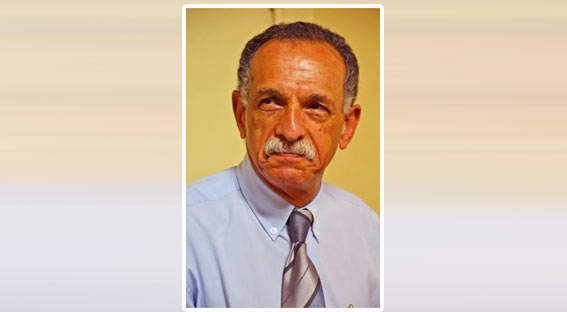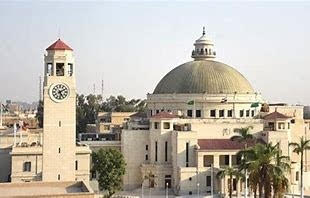A firm stand taken earlier this month by the Speaker of Egypt’s House of Representatives Hanafy al-Gebali is worth consideration and commendation. As MPs took the podium to speak, a number of them used Arabic interspersed with English words or expressions. The Speaker declared his opposition to that, demanded that MPs should adhere to the use of proper Arabic, and asked for the English expressions to be deleted from the official minutes of the meeting.
Speaker Gebali’s move put an end to a matter long overlooked in parliament. His stance moreover addressed a persistent mainstream problem that has long been ignored. This problem is the rampant use of non-Arabic words or expressions amid Arabic talk by speakers of Egyptian Arabic or classic Arabic. It is as though Arabic falls short of aptly expressing modern-day situations, notions, or sentiments. This belittlement of Arabic as a means of expression and interaction has become so widespread that it commands firm denunciation and warning, because Arabic is indeed innocent of the seeming incapacity. As I see it, the reason for using non-Arabic to compliment Arabic speech is either because the speaker is too ignorant of Arabic and its vast capabilities, or is good at another language and wishes to show it off regardless of whether or not the listener is familiar with it, or suffers from an identity crisis which drives him or her to disregard their original language and use another to express themselves. In all cases, such speakers appear to be oblivious of the fact that, as they attempt some haughty show off, they end up looking shaky characters uninterested in full interaction with others.
I am not against being adept at languages other than our native Egyptian Arabic or classic Arabic. It cannot be denied that Egypt’s geographical location has placed Egyptians in the position of being familiar with languages other than their native tongue, whether through schooling or interaction with visitors from all over the world. I belong to a generation among which many were educated in “language schools” that taught children languages such as English, French, German, or Italian. Yet these schools also taught Arabic at a very high standard: reading, writing, history, literature, and thought, at the hands of superb teachers. These schools gave Arabic utmost importance, and worked hard to teach children to be fluent in all the languages they taught. There was no tolerance to trivialising any language, using a vocabulary mix of more than one language, or shuttling between various languages in the same speech; any such practice was seen as speaker inadequacy.
So how did we come to forego proper language principles and be where we are today? I believe the deplorable tolerance of erroneous teaching methods has played a detrimental role in that. The time honoured practice of using specific languages in the fields specific to them has been abandoned. English was once the sole language to teach English and the sciences. Now English vocabulary and grammar are being explained to children in Arabic. This has happened gradually over a long period of time, spurred by increasingly inadequate teachers who thought they would bring English closer to their students by explaining it in Arabic, until it became the norm. No surprise then that generations of students grew up into men and women who use different languages interchangingly at the same instance, in many cases as a means of haughty show off.
Our modern daily life and talk witness complete surrender to such mixed use of languages, to the point that it has become spontaneous practice even in the audio and visual media. It begs the question of how about audiences who expect Arabic content? Will everyone be able to understand the multilingual feed? And when I say it is now rampant media practice, I do not mean it is widespread only in talk shows, but also in artistic and variety shows. To say nothing of advertisements or brand names of goods where the use of non-Arabic has become so rampant that one could be forgiven to think Arabic is on its way to its demise.
No surprise then that modern technology and social media, the frequenters of which are in the major part youngsters or children, brim with the use of interchangeable multilingual vocabulary and expression. Youthful creativity has reached the point where the numerals used in western languages have been employed for use as Arabic letters not available in western languages. A hybrid language evolved where Arabic is transliterated in English, using numerals to denote the consonants absent in the English language. So the borderlines between languages appear to have fallen; it looks like there is no longer any standalone language to express anything or everything.
On 14 August 2020 I wrote lamenting the handy Arabic script of riqaa falling into disuse by younger generations for the simple reason that there was no more a need for it
I asked the question “[Is] Handy Arabic script on [its] way to obsolescence?”; now I ask “Is Arabic proper on its way to obsolescence?”
Watani International
19 February 2021










